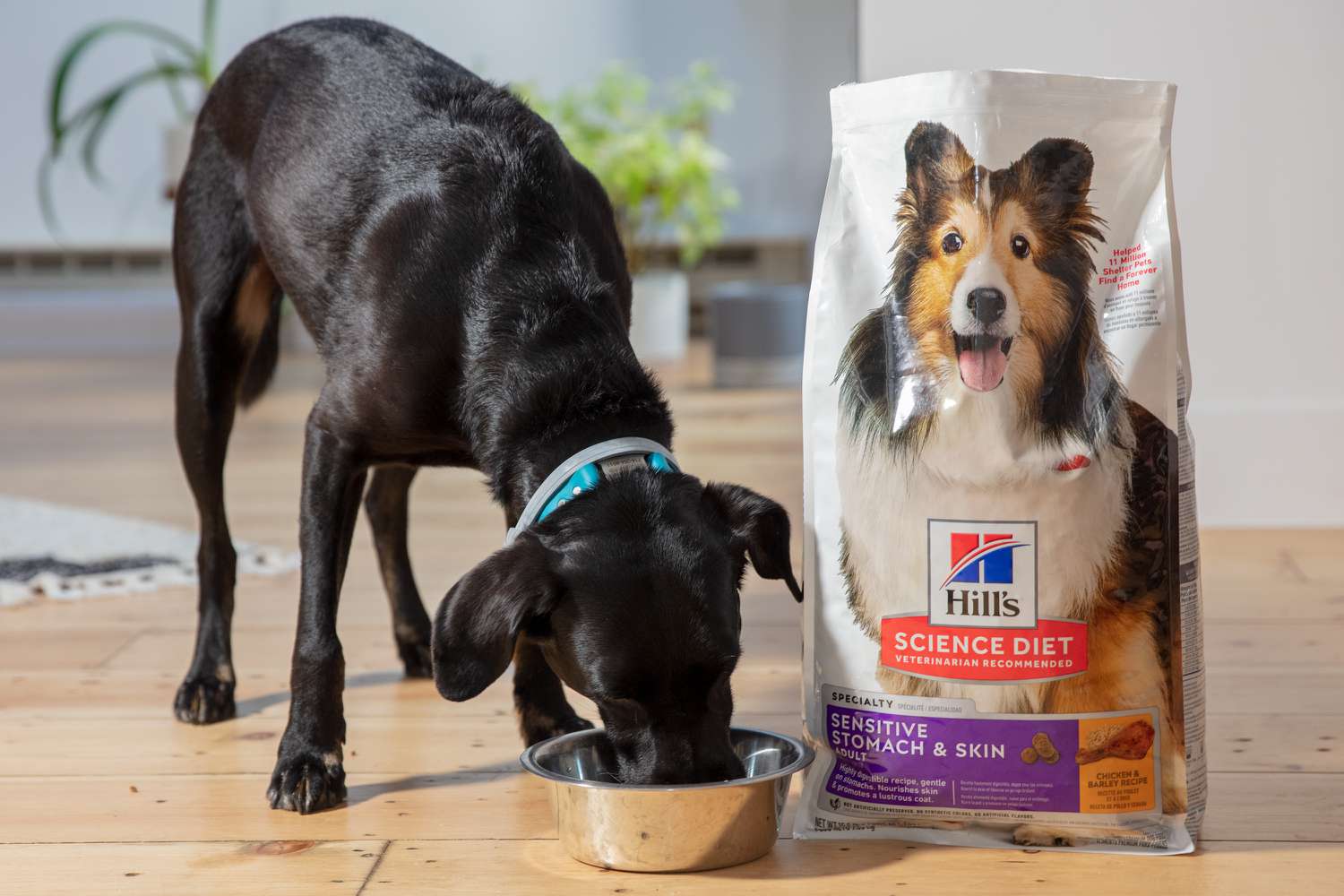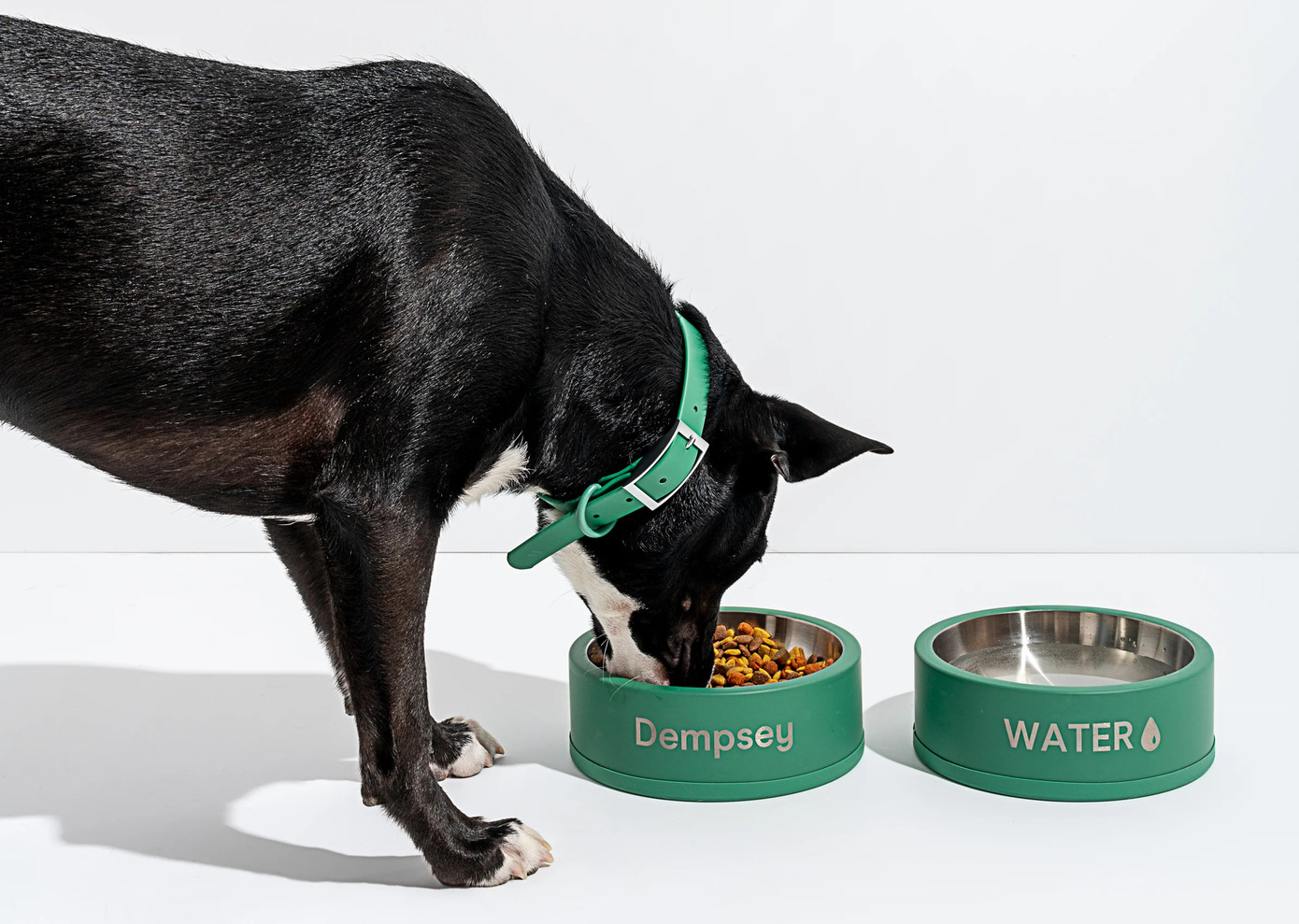Home>Health & Wellness>Nutrition & Diet>How Long Does A Dog Have To Be On A Special Diet To Determine If It Has A Food Allergy?


Nutrition & Diet
How Long Does A Dog Have To Be On A Special Diet To Determine If It Has A Food Allergy?
Modified: February 21, 2024
Discover how long a dog should be on a special diet to identify potential food allergies. Learn about nutrition and diet for your pet's health.
(Many of the links in this article redirect to a specific reviewed product. Your purchase of these products through affiliate links helps to generate commission for Pawsomeoldies.com, at no extra cost. Learn more)
Table of Contents
Introduction
Food allergies are not limited to humans; our canine companions can also experience adverse reactions to certain ingredients in their diet. As responsible pet owners, it's essential to be aware of the signs and symptoms of food allergies in dogs and understand the necessary steps to address this issue. One crucial aspect of managing food allergies in dogs involves implementing a special diet to identify and eliminate potential allergens from their food.
Identifying a food allergy in a dog can be a challenging process, often requiring patience, observation, and the guidance of a veterinarian. By introducing a specialized diet, pet owners can take proactive measures to alleviate their dog's discomfort and improve their overall well-being. This article aims to provide a comprehensive understanding of food allergies in dogs, the significance of special diets, and the duration required to determine if a dog has a food allergy.
Understanding the complexities of food allergies in dogs and the impact they can have on their health is the first step toward addressing this issue effectively. Through this article, we will delve into the intricacies of food allergies, explore the role of special diets in managing these allergies, and offer insights into the duration necessary to assess the effectiveness of a special diet for dogs with suspected food allergies.
Understanding Food Allergies in Dogs
Food allergies in dogs occur when their immune system overreacts to specific proteins present in their diet. These allergic reactions can manifest in various ways, including gastrointestinal issues, skin problems, and even respiratory distress. It's important to note that food allergies differ from food intolerances, as the former involves an immune system response, while the latter typically pertains to digestive issues.
The symptoms of food allergies in dogs can be diverse and may include itching, redness, swelling, ear infections, vomiting, diarrhea, and excessive flatulence. These signs can significantly impact a dog's quality of life and may lead to discomfort and distress if left unaddressed.
Identifying the specific allergen causing a dog's adverse reaction can be a complex process. Common allergens for dogs include beef, dairy, wheat, egg, chicken, lamb, soy, pork, rabbit, and fish. However, it's important to recognize that any ingredient has the potential to trigger an allergic response in a susceptible dog.
Unlike humans, whose allergic reactions often result in respiratory symptoms, dogs primarily exhibit skin-related issues when dealing with food allergies. This can make it challenging for pet owners to recognize the underlying cause of their dog's discomfort, as skin problems can stem from various sources.
Diagnosing food allergies in dogs typically involves a systematic approach, which may include dietary trials, elimination diets, and in some cases, allergy testing. It's crucial for pet owners to work closely with a veterinarian to accurately identify and manage their dog's food allergies.
By gaining a deeper understanding of the complexities surrounding food allergies in dogs, pet owners can approach the management of these conditions with empathy and diligence. This knowledge equips them to make informed decisions regarding their dog's diet and overall well-being, ultimately contributing to a healthier and happier life for their beloved canine companions.
Special Diets for Dogs with Food Allergies
When it comes to addressing food allergies in dogs, implementing a special diet is a fundamental aspect of managing their condition. The primary objective of a special diet for dogs with food allergies is to eliminate potential allergens from their food, thereby alleviating their symptoms and improving their overall well-being.
Special diets for dogs with food allergies often involve the use of novel protein sources and carbohydrates that the dog has not been previously exposed to. This approach aims to minimize the likelihood of triggering an allergic response. Common novel protein sources used in special diets include venison, duck, rabbit, and kangaroo, while alternative carbohydrate sources may include sweet potatoes, peas, and tapioca.
Furthermore, hydrolyzed protein diets are another option for dogs with food allergies. These diets feature proteins that have been broken down into smaller components, reducing the likelihood of provoking an immune response. By utilizing hydrolyzed protein diets, pet owners can provide their dogs with essential nutrients while minimizing the risk of allergic reactions.
It's important to note that special diets for dogs with food allergies should be formulated to meet the dog's nutritional requirements. This ensures that the dog receives adequate levels of essential nutrients, vitamins, and minerals despite the elimination of specific ingredients from their diet. Consulting with a veterinarian or a board-certified veterinary nutritionist is crucial in designing a special diet that meets these nutritional needs.
Transitioning a dog to a special diet should be done gradually to minimize digestive upset and allow the dog's system to adapt to the new food. This gradual transition involves mixing small amounts of the new diet with the dog's current food over a period of several days until the transition is complete.
In addition to selecting appropriate ingredients, pet owners should also consider the form of the special diet. Commercially available hypoallergenic dog foods, both in dry kibble and wet canned forms, offer convenience and assurance of balanced nutrition. Alternatively, homemade diets can be tailored to the specific needs of the dog, provided they are formulated under the guidance of a veterinary professional.
By implementing a carefully curated special diet, pet owners can play a proactive role in managing their dog's food allergies. This dietary intervention aims to provide relief from allergic symptoms, improve the dog's overall health, and contribute to a better quality of life. However, the duration for which a dog should remain on a special diet to effectively determine the presence of a food allergy is a critical consideration, which we will explore in the following section.
How Long to Keep a Dog on a Special Diet
Determining the appropriate duration for keeping a dog on a special diet to ascertain the presence of a food allergy is a pivotal consideration for pet owners and veterinarians alike. The timeframe for this dietary trial is crucial in evaluating the dog's response to the special diet and identifying potential allergens.
In general, dogs should remain on a special diet for a minimum of 8 to 12 weeks to effectively assess its impact on their condition. This duration is based on the premise that most allergic reactions in dogs occur within this timeframe. By maintaining the special diet for this extended period, pet owners can observe any changes in their dog's symptoms and overall well-being, providing valuable insights into the presence of food allergies.
During this period, it is imperative to ensure strict adherence to the special diet without any deviations or unauthorized treats. Any form of dietary indiscretion, such as feeding the dog table scraps or introducing new food items, can compromise the integrity of the trial and yield inconclusive results. Therefore, unwavering commitment to the special diet is essential for accurate assessment.
The 8 to 12-week timeframe allows for the dog's system to undergo a complete dietary transition and adapt to the novel protein and carbohydrate sources. It also provides sufficient time for any existing allergens to be eliminated from the dog's system, thereby reducing the likelihood of continued allergic reactions.
It is important to note that while many dogs exhibit noticeable improvements within the initial weeks of the special diet, some may require the full 12-week period to manifest significant changes. Therefore, patience and consistency are paramount throughout the duration of the dietary trial.
In cases where the dog's symptoms show substantial improvement or complete resolution during the 8 to 12-week period, it is indicative of a potential food allergy. At this stage, a systematic reintroduction of the dog's previous diet components may be recommended to confirm the allergen and further validate the diagnosis.
In contrast, if the dog's symptoms persist or show minimal improvement after the prescribed duration, it suggests that the special diet may not be effectively addressing the underlying issue. In such instances, additional diagnostic measures, including allergy testing or further dietary modifications, may be warranted to accurately identify the allergen and devise an appropriate management plan.
In essence, the duration for which a dog should remain on a special diet serves as a critical phase in the diagnostic process for food allergies. By adhering to the recommended timeframe and closely monitoring the dog's response, pet owners and veterinarians can gain valuable insights into the presence of food allergies and make informed decisions regarding the dog's long-term dietary management.
Monitoring and Evaluating Results
After implementing a special diet for a dog with suspected food allergies, diligent monitoring and evaluation of the results are essential to gauge the effectiveness of the dietary intervention. This phase involves close observation of the dog's response to the special diet, tracking any changes in symptoms, and assessing overall well-being.
During the prescribed 8 to 12-week duration of the special diet, pet owners play a pivotal role in monitoring their dog's progress. This entails documenting any alterations in the dog's behavior, such as reduced itching, improved coat condition, diminished gastrointestinal disturbances, and enhanced energy levels. These observations serve as valuable indicators of the dog's response to the special diet and provide insights into the potential presence of food allergies.
In addition to behavioral changes, physical manifestations of allergic reactions, such as skin redness, ear infections, and digestive irregularities, should be meticulously monitored. Any fluctuations in these symptoms throughout the dietary trial period can offer crucial clues regarding the impact of the special diet on the dog's overall health.
Furthermore, maintaining a detailed journal or diary to record the dog's daily progress, including meal times, portion sizes, and any observed reactions, can facilitate a comprehensive evaluation of the dietary trial. This systematic approach enables pet owners to track patterns, identify potential triggers, and communicate pertinent information to the veterinarian, thereby contributing to a more informed assessment of the dog's condition.
In parallel, regular communication with the veterinarian is imperative during the monitoring and evaluation phase. Scheduled check-ins or follow-up appointments allow for the exchange of pertinent information, the review of the dog's progress, and the adjustment of the management plan as necessary. Veterinarians can provide valuable guidance, interpret the observed changes, and offer insights into the next steps based on the dog's response to the special diet.
Moreover, in cases where the dog's symptoms exhibit notable improvements or complete resolution during the dietary trial, the veterinarian may recommend a systematic reintroduction of the dog's previous diet components. This controlled process aims to confirm the presence of a food allergy, identify the specific allergen, and further validate the diagnosis, thereby informing the long-term dietary management plan.
In essence, the monitoring and evaluation of results during the special diet trial period are integral to the diagnostic process for food allergies in dogs. By actively engaging in this phase, pet owners can contribute to a comprehensive assessment of their dog's condition, facilitate informed discussions with the veterinarian, and ultimately optimize the management of their dog's dietary needs.
Conclusion
In conclusion, the management of food allergies in dogs necessitates a multifaceted approach that encompasses understanding, intervention, and evaluation. The intricate nature of food allergies in dogs underscores the significance of specialized dietary trials in identifying potential allergens and alleviating the associated symptoms. By delving into the complexities of food allergies and the role of special diets, pet owners can navigate this challenging terrain with empathy, diligence, and a commitment to their dog's well-being.
The implementation of a special diet for dogs with suspected food allergies is a pivotal step in the diagnostic process. It involves the strategic selection of novel protein and carbohydrate sources, meticulous adherence to the prescribed diet, and a dedicated timeframe for assessment. The recommended duration of 8 to 12 weeks for the special diet trial provides a comprehensive window for observing the dog's response, tracking changes in symptoms, and evaluating the effectiveness of the dietary intervention.
Throughout the dietary trial, pet owners play a crucial role in monitoring their dog's progress, documenting observed changes, and communicating pertinent information to the veterinarian. This collaborative approach fosters a deeper understanding of the dog's condition, facilitates informed decision-making, and contributes to the formulation of a tailored management plan based on the dog's specific dietary needs.
Furthermore, the close partnership between pet owners and veterinarians is instrumental in navigating the complexities of food allergies in dogs. Regular communication, scheduled check-ins, and the exchange of insights enable a holistic evaluation of the dog's response to the special diet, paving the way for informed discussions and the formulation of a comprehensive long-term management strategy.
In essence, the journey of managing food allergies in dogs through special diets embodies a commitment to empathy, patience, and proactive intervention. By embracing the complexities of this endeavor and leveraging the insights gained from the special diet trial, pet owners can empower themselves to make informed decisions that prioritize their dog's health and well-being. Ultimately, the journey of managing food allergies in dogs is a testament to the unwavering bond between pet owners and their beloved canine companions, underscoring the profound dedication to providing the best possible care for these cherished members of the family.














